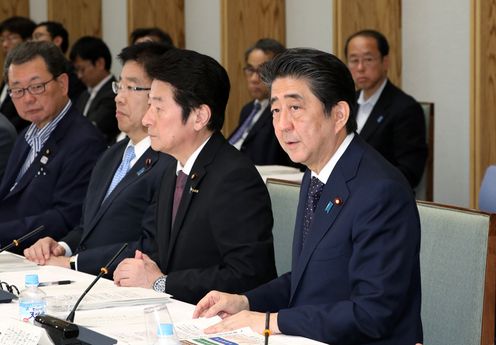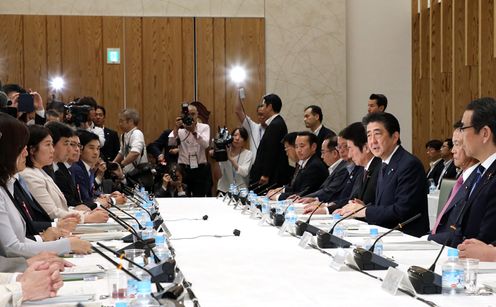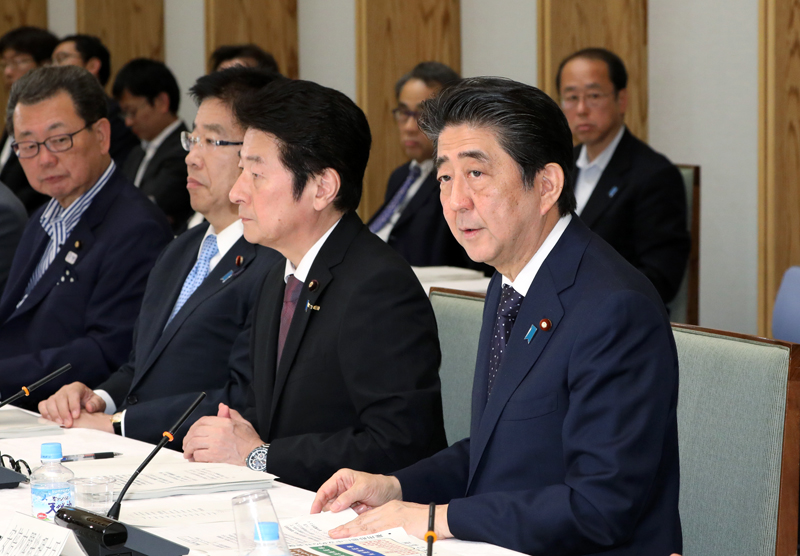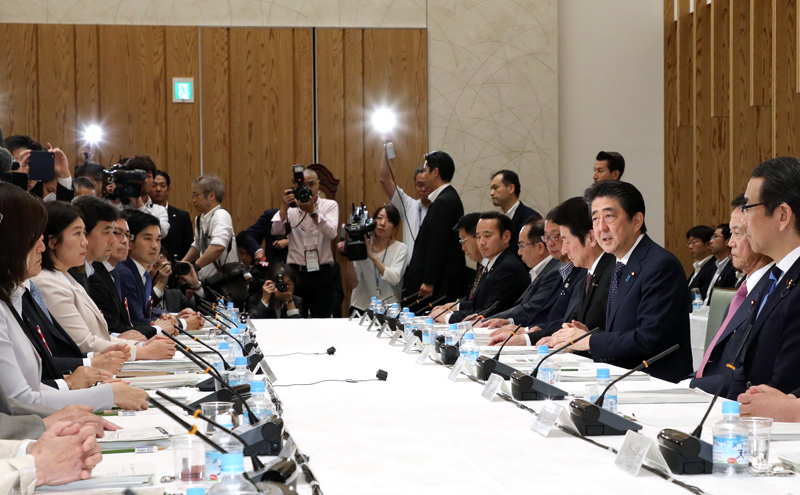Home > News > The Prime Minister in Action > May 2018 > Follow-up Meeting on “Japan’s Plan for Dynamic Engagement of All Citizens
The Prime Minister in Action
Follow-up Meeting on “Japan’s Plan for Dynamic Engagement of All Citizens
May 30, 2018

Photograph of the Prime Minister making a statement

Photograph of the Prime Minister making a statement
[Provisional Translation]
On May 30, 2018, Prime Minister Shinzo Abe held the second follow-up meeting on the “Japan’s Plan for Dynamic Engagement of All Citizens,” at the Prime Minister’s Office.
At the meeting, there was discussion on the state of progress of Japan’s Plan for Dynamic Engagement of All Citizens.
Based on the discussion, the Prime Minister said,
“The Abe Cabinet has implemented initiatives such as the three arrows of Abenomics, regional revitalization, and human resources development towards the 100-year life society. By advancing these initiatives, we aim to realize a society in which all people, including the elderly and the young, men and women, as well as people with disabilities and those suffering from intractable diseases, can participate and are dynamically engaged.
Among the challenges to realize a society in which all citizens are dynamically engaged, work style reform is the toughest agenda. In the midst of implementing Abenomics, which I mentioned earlier, the ratio of active job openings to applicants in regular employment has surpassed 1.0 for the first time in five years. In April this year, the employment rate for university graduates has also exceeded 98%. This is the highest rate we have seen since the statistics were first compiled. In short, we have, in a sense, a labor shortage. I believe such a situation provides us with precisely the opportunity to move forward on work style reform. That is why it is necessary to firmly sustain this situation going forward, through macro- and micro-economic policies, in order to drive this reform forward and make it effective.
Concerning work style reform itself, the Diet is currently making deliberations on the work style reform bill, which cover areas such as reducing long working hours, realizing equal pay for equal work, and the creation of a ‘high-level professionals’ system. I will aim to have the bills passed during the current Diet session.
Furthermore, in regard to making early childhood education free, eliminating childcare waiting lists, and making higher education free, we will accelerate efforts to utilize funding by raising the consumption tax rate, and also put further effort into initiatives related to ‘recurrent education’ (continuing education) and university reforms. I hope that we will compile a basic design soon in the Council for Designing 100-Year Life Society.
Lack of human resources in the nursing care sector also came up in the discussion. A serious labor shortage problem is also emerging, as the ratio of active job openings to applicants reaches its highest level for the first time in 44 years. In order to accept a wide range of foreign personnel who can be immediately effective in the field, I would like to propose a new system for accepting specialized and technical foreign personnel in the Basic Policy.
Based on the views that we have received from the expert members today, I would like the relevant ministers to proceed in a speedy manner towards the implementation of further measures.”


